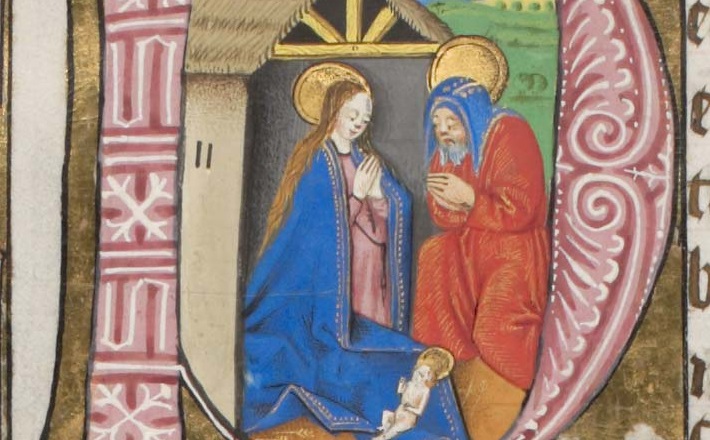Commentary on Titus 3:4-7
Most preachers who encounter this text will do so on Christmas morning itself.
If that’s true, then the preacher and the hearers are coming to this passage at a strange moment in the struggle between secular and religious Christmas. As people awaken early to open gifts in their pajamas, it can seem like Santa has finally triumphed. But any family that leaves the warmth of their home to venture out to Church on the morning of the Nativity bears witness in their bodies that it is Christ who is victorious, this day and all days.
This year, Christmas Day is actually a Sunday, so perhaps there will be a few more congregants than usual, but in any case, the faithful (or faith seekers) who arrive this morning will appreciate a solidly Christian message.
Christ’s presence and saving action
“But when the goodness and loving-kindness of God our Savior appeared, he saved us” this excerpt begins. The use of the word “But” suggests that this passage is in contrast to whatever came before. In this case, it’s in contrast to the list of sins in the unread verse 3. What makes the difference is the appearance of God’s loving-kindness. Read on Christmas Day, a connection between God’s loving-kindness and the arrival of the Christ Child is easy to make.
And when he appears, he saves us. Of course, that is the point of all this, isn’t it? The Incarnation is the first act in Christ’s life, death, resurrection, and ascension. It’s already amazing, and worthy of praise that God would come to humanity at all, let alone live and die as one of us to save us from sin and death. This baby, helpless now in a manger, is the same one who will die helpless on a Cross to show us all what true power is. The Incarnation and the Paschal Mystery are two ends of the single story of God’s sheer love in Jesus.
Baptism
This passage continues by affirming that the saving act of Christ is not a result of anything we have done, or could do. Indeed, there is no work or righteousness that causes our salvation. Instead our salvation is a consequence of God’s mercy. Just as Christ’s presence in our world is a gift, so is the salvation he brings. This salvation comes to us “through the water of rebirth and renewal but he Holy Spirit.” This reference to baptism is an invitation to the preacher and the congregation to extend the story of Jesus past the moment of his birth into the lives of today’s faithful followers.
At the end of a busy Holiday season, this reminder of our Baptism can be a moment of centering in our faith, and a reminder of the way that God’s salvation is always an invitation to rebirth and renewal. The turning of the calendar year is often thought of as an opportunity to get a new start, but the Christian life is one of continually beginning again through perpetual conversion and renewal of life through the indwelling of the Spirit.
The Gift of the Spirit
In baptism, God bestows upon us the gift of the Holy Spirit. This is no stingy or reluctant gift, either. Paul reminds Titus that this gift is poured out on us “richly.” It is an abundant sharing in God’s life and love of the world. One that will inevitably and irrevocably alter our lives, and through us, the entire world.
The Holy Spirit continues to accompany us all along the journey of our redeemed lives. This justification, which comes to us by grace, is only the beginning. Far from being an end in itself, it is the process by which we are always becoming the people God is calling us to be, “heirs according to the hope of eternal life.”
The truest gift of the Christmas season is God’s gift of Jesus Christ to the world, and through him, the Holy Spirit which animates our lives and brings us salvation and eternal life.


December 25, 2016